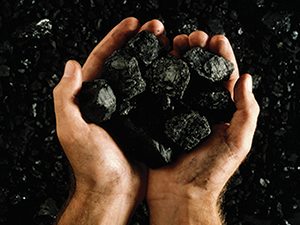
[miningmx.com] – ONE of the changes South Africa’s mining sector can expect from Brian Molefe in the event his secondment to the CEO’s office at Eskom is turned into a permanent appointment is in how the utility buys coal to fire its power stations.
Historically, Eskom has contributed to some, if not all, of the capital cost required to build a coal mine when the quid pro quo was exclusive supply and cost plus pricing; in other words, the coal is sold at a fixed percentage above the miner’s operating costs.
Molefe, however, thinks that that kind of coal buying structure harks back to a period when Eskom had more money than coal to burn. Interestingly, the country’s coal miners may well agree.
Many of the exclusive supply contracts signed with Eskom – known as “tied’ or “cost plus’ mines’ – are due to expire in a few years when it’s likely that prices will still be near cyclical lows. The thought is that a more nuanced pricing mechanism is required.
Graham Kerr, CEO of the newly created South32, has alluded to changing the structure of coal supply to Eskom. “Khutala is cost plus, but clearly we will have to look at what structure of contract gives best returns and we will have that conversation,’ said Kerr.
Said Molefe: “We pay for the capital expenditure of the mine and even the operating expenditure some times, and then still pay a tariff (for the coal). We have been doing that for years and it has cost us and arm, and a leg and a little bit more’.
“If I were to be there [at Eskom] beyond the middle of July, I would say we must have a tender for the supply of coal of a certain grade to an Eskom power station.
“It might not be from the mine next door, but from whoever can supply coal of a certain grade to Eskom.
“If the mine next door is five cents more expensive and the mine 200km away can deliver it five cents cheaper, and it is the right grade, we must buy it from there. It’s a free market,’ he said.
Said Molefe of the tied-mine structure: “We want bread, but we shouldn’t get involved in discussions about where we get the oven and where are we going to build the bakery or how it is going to be built. We just want bread.’
He was also critical of past practices that didn’t suit Eskom given its heavy debt burden. “This thing of Eskom hiring geologists to go and do prospecting for coal .. that is not our business. I’m sorry,’ he said.
Molefe also responded to controversial comments he made in Parliament on May 14 that Eskom did not face a crisis in its coal procurement programme because it had more than 200 million tonnes (mt) of the fuel in the ground.
“There is no crisis with the supply of coal to Eskom. To say we’re going to have a crisis with coal supplies is a bit rich. I know there are a number of companies who are eager to negotiate contracts with Eskom,’ he said in May.
Public enterprises minister, Lynne Brown later clarified that Eskom faced a 17mt coal shortfall by 2017 at its coal-fired plants relating to supply from the Matla, Tutuka and Hendrina power stations where coal supply agreements expire this year, and Kriel and Arnot power stations where the coal supply agreements end in 2017. Eskom has so far contracted 899mt for delivery from 2016 to 2030, said Brown.
“I think there is sufficient coal in the ground to create a supply tension that will bring down Eskom’s price of coal,’ said Molefe.
“It is not like the resource is limited and there are no suppliers that we have to pander to the need of the suppliers for capital expenditure. That was done when we had excess cash’.











